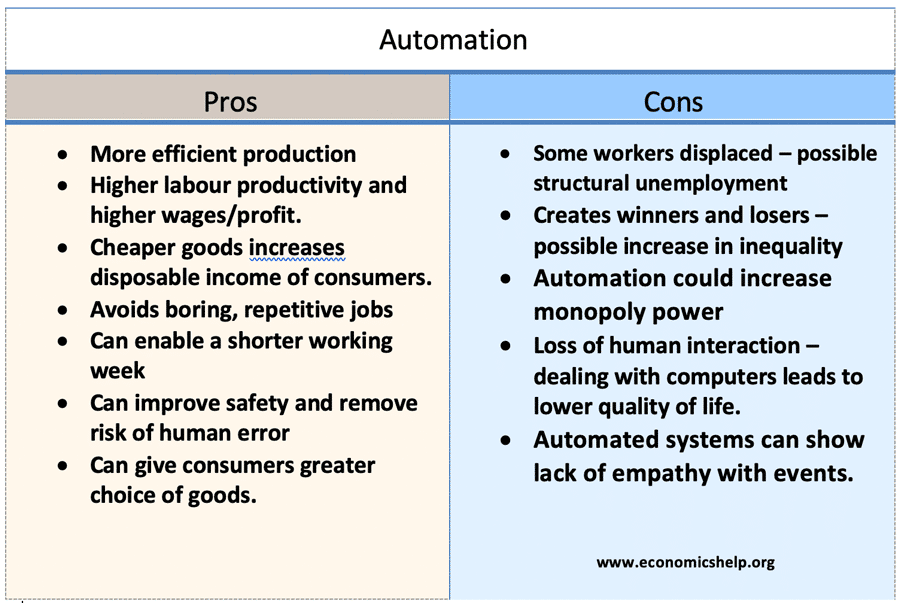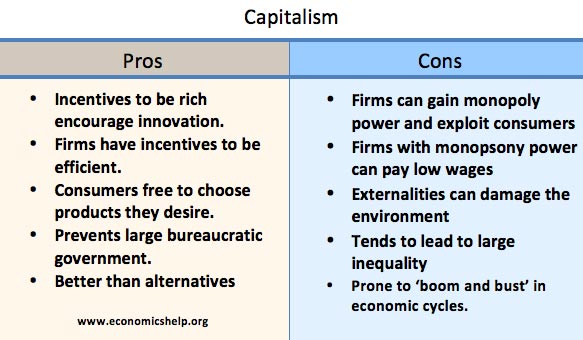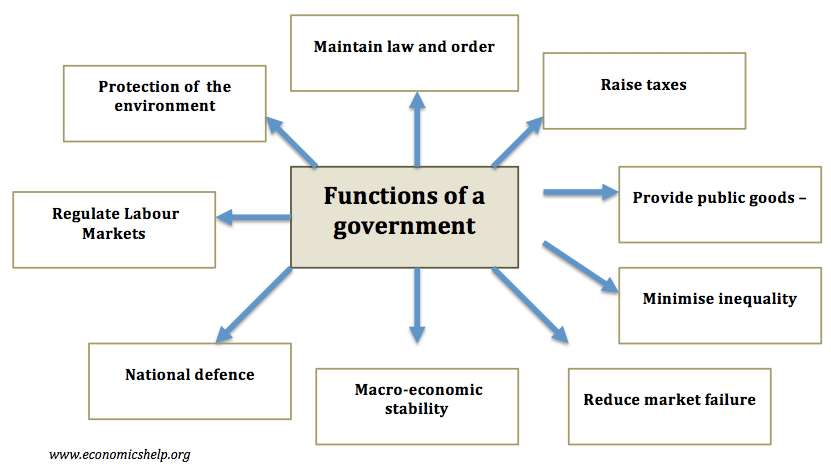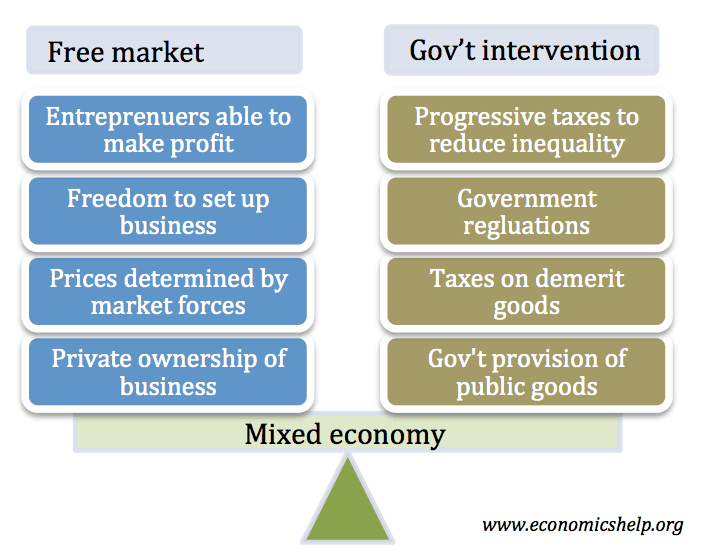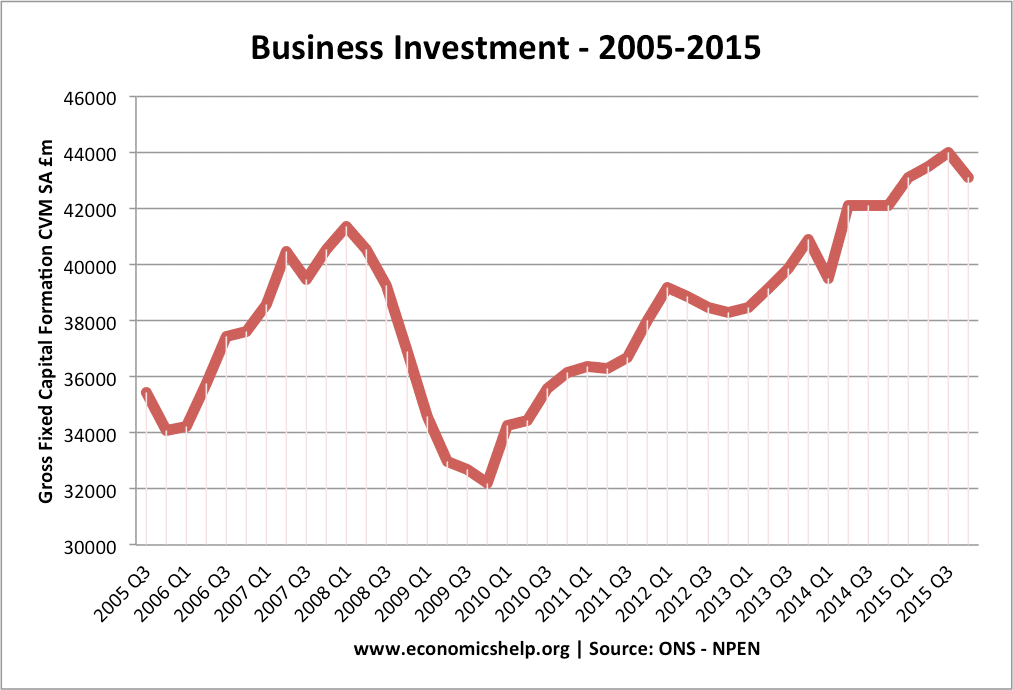Automation – benefits and costs
Definition of automation Automation refers to the process of automatically producing goods through the use of robots, control systems and other appliances with a minimal direct human operation. Within manufacturing industries, automation has led to increased labour productivity as fewer workers are needed to produce the same number of manufactured goods. A perceived downside of …

